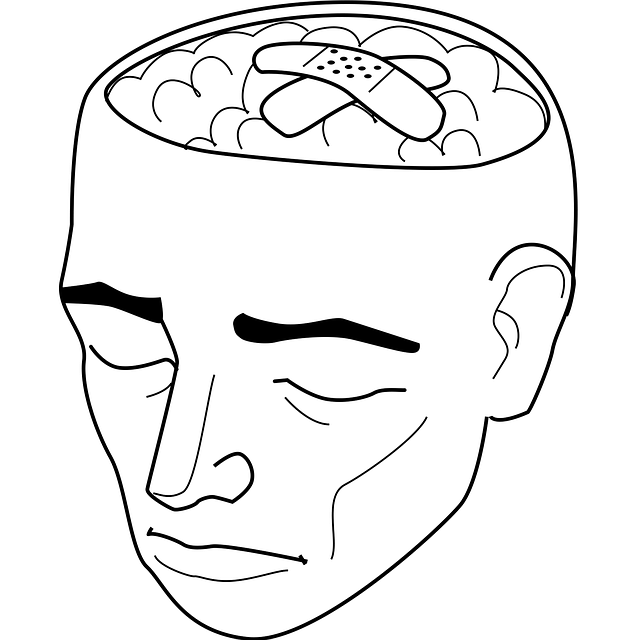A successful mental wellness podcast for Lafayette Abuse Survivors must understand their unique emotional needs and provide a safe space for processing trauma, depression, and anxiety. With engaging content combining personal stories and practical strategies, the podcast offers hope and guidance. A strategic format includes introductions, structured segments, storytelling, expert interviews, Q&A sessions, and call-to-actions. High-quality production, vulnerability, cultural sensitivity, and stress reduction techniques ensure a supportive environment. Accessible audio platforms, social media promotion, community partnerships, and targeted advertising help reach Lafayette Abuse Survivors, fostering community and enhancing therapy accessibility.
“Unveiling the power of mental wellness podcasts, this series delves into the lives of Lafayette abuse survivors, focusing on their unique therapeutic journey. We explore how tailored content can foster healing and growth. From crafting compelling episodes to structuring formats that resonate, this guide offers essential insights for producers. Learn about sensitive content creation, effective distribution strategies, and the potential for podcasts to reach and support Lafayette abuse survivors through audio platforms, providing much-needed therapy.”
- Understanding the Target Audience: Lafayette Abuse Survivors and Their Unique Needs
- Crafting Compelling Content: Topics and Themes for Healing and Growth
- Building an Engaging Podcast Format: Structure and Delivery for Maximum Impact
- Creating a Supportive Environment: Production Tips for Sensitive Content
- Distribution and Promotion: Reaching and Supporting Lafayette Abuse Survivors Through Audio Platforms
Understanding the Target Audience: Lafayette Abuse Survivors and Their Unique Needs

Understanding the target audience is a crucial step in producing a successful mental wellness podcast series focused on Lafayette Abuse Survivors and their unique needs. These individuals often face complex emotional challenges, including trauma, depression, and anxiety, stemming from past abuse experiences. Many survivors may struggle with low self-esteem, trust issues, and difficulties forming healthy relationships. Therefore, the content should cater to their specific requirements for healing and support.
The podcast can offer therapeutic benefits by providing a safe space for Lafayette Abuse Survivors to process their emotions, share stories, and learn coping skills. Episodes could include interviews with experts in trauma therapy, psychological insights into abuse aftermath, and practical strategies for building inner strength. By addressing topics like anxiety relief, stress management, and healthy boundaries, the podcast can empower survivors to develop essential coping skills while fostering a sense of community and understanding.
Crafting Compelling Content: Topics and Themes for Healing and Growth

Crafting compelling content is key to engaging listeners and fostering mental wellness through a podcast series. When exploring topics for healing and growth, consider incorporating diverse themes that resonate with various audiences. For instance, episodes focused on Lafayette Abuse Survivors Therapy can offer powerful narratives and practical strategies for recovery. These stories not only provide hope but also shed light on the importance of seeking support and implementing therapeutic practices.
Integrating Compassion Cultivation Practices, Mental Wellness Journaling Exercise Guidance, and Self-Care Routine Development for Better Mental Health adds depth to your content. Each episode can delve into specific techniques, providing listeners with actionable insights they can integrate into their daily lives. By offering a mix of personal narratives and expert guidance, your podcast series becomes a valuable resource for mental wellness, empowering individuals to cultivate compassion, nurture self-care, and embrace growth.
Building an Engaging Podcast Format: Structure and Delivery for Maximum Impact

To build an engaging podcast series on mental wellness, careful consideration of format and delivery is key. A structured approach can enhance listener retention and ensure each episode provides valuable insights. Start with a clear introduction that sets the tone for the topic, followed by segmentations that break down complex issues into digestible parts. Incorporate storytelling elements to humanize experiences, making abstract concepts more relatable. Inviting guests like Lafayette Abuse Survivors Therapy professionals or trauma support service experts can offer diverse perspectives and real-world insights, enriching content for listeners.
Segmentation strategies should include a mix of educational segments on topics relevant to mental illness stigma reduction efforts, and practical tips for managing daily stress. Balance informative discussions with interactive elements that encourage listener engagement, such as Q&A sessions or community spotlights. This dynamic format not only captivates but also fosters a sense of belonging among the audience, especially those navigating their mental health journeys. Incorporate call-to-actions to guide listeners towards relevant resources, ensuring they feel supported and empowered post-listen, much like how Healthcare Provider Cultural Competency Training equips professionals with tools to offer better care.
Creating a Supportive Environment: Production Tips for Sensitive Content

Creating a supportive environment is paramount when producing a mental wellness podcast series, especially when addressing sensitive topics like those faced by Lafayette Abuse Survivors Therapy clients. It’s crucial to foster an atmosphere that encourages vulnerability and trust. This means prioritizing comfort and accessibility in audio quality and production value, ensuring hosts and guests feel safe to share their stories openly.
Incorporating practices for stress reduction methods and resilience building can help maintain a healing space. This includes careful planning to avoid triggering content, providing clear consent from participants, and offering resources for listeners who may need additional support. Cultural sensitivity in mental healthcare practice is also essential; producers should be mindful of diverse perspectives and backgrounds, ensuring respectful representation and accurate information.
Distribution and Promotion: Reaching and Supporting Lafayette Abuse Survivors Through Audio Platforms

Reaching Lafayette Abuse Survivors through audio platforms offers a powerful medium for delivering mental wellness support. Podcasts provide an accessible and discreet way for survivors to engage with therapy and strategies for mood management and positive thinking. By making this content readily available, creators can support individuals who might otherwise face barriers to traditional therapy services.
Effective promotion is key to ensuring that Lafayette Abuse Survivors are aware of and able to access these valuable resources. Leveraging social media, community partnerships, and targeted online advertising can help spread the word. Collaborating with local organizations and advocacy groups further amplifies the reach, fostering a sense of community and solidarity among survivors while encouraging open conversations about emotional regulation.
Producing a mental wellness podcast series focused on Lafayette Abuse Survivors requires a deep understanding of their unique needs and a commitment to delivering sensitive, engaging content. By crafting topics that foster healing and growth, structuring episodes for maximum impact, and creating a supportive production environment, we can offer valuable resources for Lafayette Abuse Survivors seeking therapy and support through audio platforms. Remember that each survivor’s journey is distinct, so ensuring accessibility, privacy, and a non-judgmental space are paramount. Through thoughtful content creation and strategic distribution, this podcast series has the potential to be a game-changer in reaching and supporting Lafayette Abuse Survivors on their path to healing.














